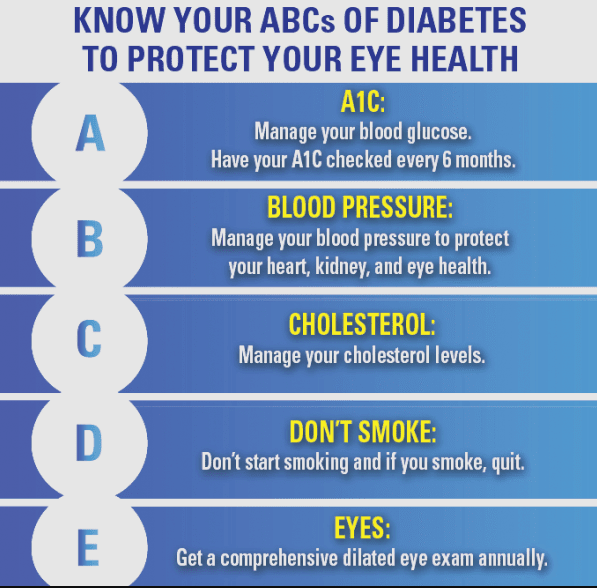November is Diabetic Eye Disease Awareness Month
Join us this November as we raise awareness about the importance of maintaining healthy eyes for individuals with diabetes. Learn about the causes, types, prevention, and management of diabetic eye disease. Early detection and timely treatment can make all the difference.
Understanding Diabetic Eye Disease
What is Diabetic Eye Disease?
 Diabetic eye disease is a group of eye conditions that affect individuals with diabetes. It includes diabetic retinopathy, diabetic macular edema, cataracts, and glaucoma.
Diabetic eye disease is a group of eye conditions that affect individuals with diabetes. It includes diabetic retinopathy, diabetic macular edema, cataracts, and glaucoma.
How Does Diabetes Affect the Eyes?
High blood sugar levels can damage the blood vessels in the retina, leading to vision problems. Diabetes can also increase the risk of developing cataracts and glaucoma.
Types of Diabetic Eye Disease
Diabetic Retinopathy
Diabetic retinopathy is the most common type of diabetic eye disease. It occurs when the blood vessels in the retina are damaged, leading to vision loss. Early detection and treatment are essential.
Diabetic Macular Edema
Diabetic macular edema is a complication of diabetic retinopathy. It causes swelling in the macula, the central part of the retina responsible for sharp vision. Timely treatment can help prevent vision loss.
Cataracts and Glaucoma
Individuals with diabetes are more likely to develop cataracts and glaucoma. Regular eye exams and proper management of diabetes can help reduce the risk of these conditions.
Prevention and Management
Preventing Diabetic Eye Disease
Maintain good blood sugar control, eat a healthy diet, exercise regularly, avoid smoking, and protect your eyes from UV rays and injury.
Lifestyle Modifications
Managing diabetes with a balanced diet,regular exercise, and medication can help reduce the risk of diabetic eye disease. Consult with your healthcare provider for personalized advice.
Diabetes Management and Eye Health
Proper management of diabetes, including regular monitoring of blood sugar levels and taking prescribed medications, is essential for preventing eye complications.
Importance of Early Detection and Treatment
Benefits of Early Detection
 Early detection of diabetic eye disease allows for timely treatment, reducing the risk of vision loss and other complications.
Early detection of diabetic eye disease allows for timely treatment, reducing the risk of vision loss and other complications.
Regular Eye Exams and Screenings
Annual comprehensive eye exams are recommended for individuals with diabetes to detect any signs of eye disease. Additional screenings may be necessary based on individual risk factors.
Treatment Options
Treatment options for diabetic eye disease include medication, laser therapy, and surgery depending on the specific condition and severity. Your eye care professional will determine the most suitable treatment plan for you.
Statistics and Impact
Diabetic eye disease affects millions worldwide and is a leading cause of vision loss. Approximately one in three individuals with diabetes over the age of 40 has diabetic retinopathy, while diabetic macular edema affects about one in ten.
Take Action Today
Raise Awareness
Spread the word about diabetic eye disease and the importance of regular eye exams among friends, family, and your community.
Adopt a Healthy Lifestyle
Make healthy choices to prevent diabetes and manage your blood sugar levels effectively. A healthy lifestyle benefits overall health, including eye health.
Conclusion
By raising awareness, understanding the risks, and taking preventive measures, we can reduce the impact of diabetic eye disease. Regular eye exams, early detection, and timely treatment are crucial for maintaining good vision and quality of life for individuals with diabetes.



